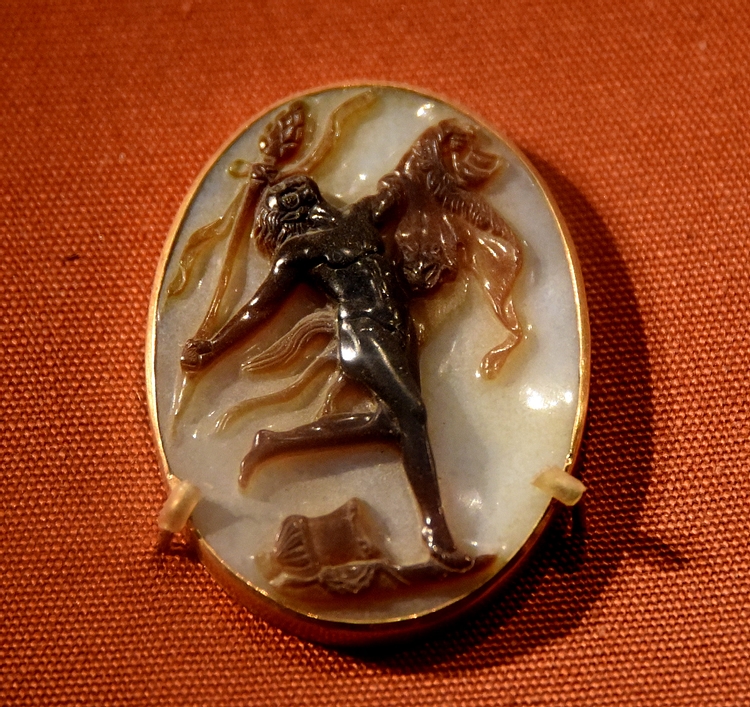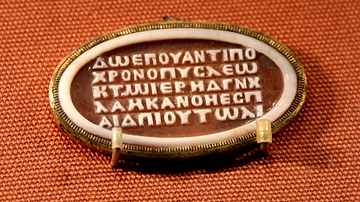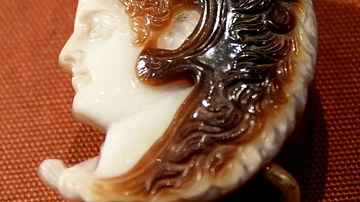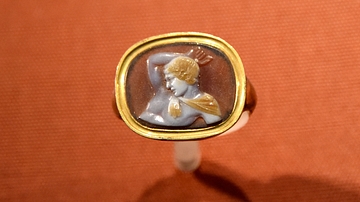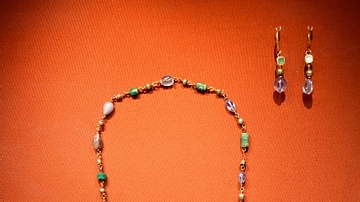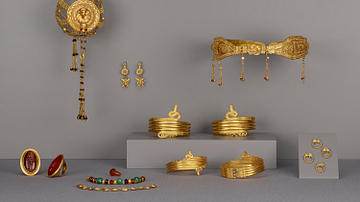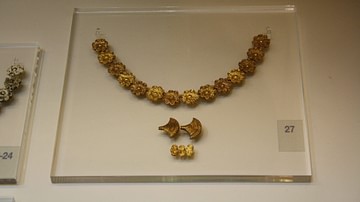Illustration
Skillful Roman cameo-carvers exploited the tonal contrast of some stones. This could be a simple 2-tone contrast or a more subtle variation using all available gradations of shade. Sardonyx was particularly valued as a cameo-stone. From the Blacas Collection. Roman, 1st century BCE. (The British Museum, London).
About the Author
Cite This Work
APA Style
Amin, O. S. M. (2016, October 02). Sardonyx Cameo Showing a Dancing Satyr. World History Encyclopedia. Retrieved from https://www.worldhistory.org/image/5813/sardonyx-cameo-showing-a-dancing-satyr/
Chicago Style
Amin, Osama Shukir Muhammed. "Sardonyx Cameo Showing a Dancing Satyr." World History Encyclopedia. Last modified October 02, 2016. https://www.worldhistory.org/image/5813/sardonyx-cameo-showing-a-dancing-satyr/.
MLA Style
Amin, Osama Shukir Muhammed. "Sardonyx Cameo Showing a Dancing Satyr." World History Encyclopedia. World History Encyclopedia, 02 Oct 2016, https://www.worldhistory.org/image/5813/sardonyx-cameo-showing-a-dancing-satyr/. Web. 30 Jun 2025.

